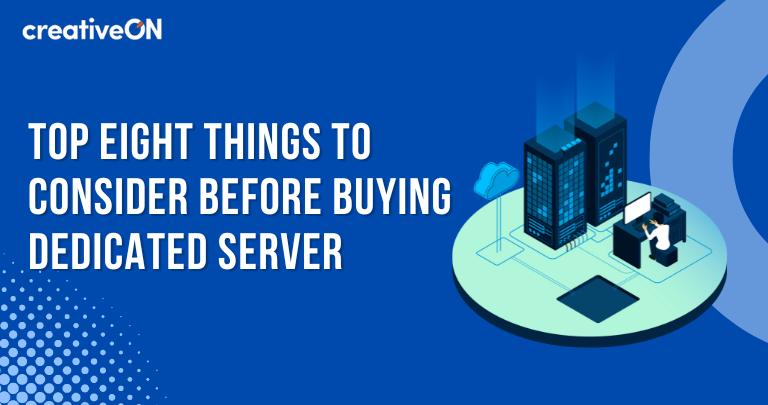When it comes to choosing a dedicated server, making the right decision is crucial for your business’s success. The right server can provide the performance, reliability, and security your applications or websites need, while the wrong choice could lead to unnecessary headaches. Here are the top eight factors you should consider before purchasing a dedicated server.
1. Understand Your Performance Needs
Performance is the backbone of any server’s functionality. The first step in choosing a dedicated server is understanding what your business requires in terms of processing power, memory, and storage. For instance, if you’re running resource-intensive applications like databases, media streaming, or large-scale eCommerce platforms, you’ll need a server with a powerful CPU, sufficient RAM, and fast storage solutions like SSDs. SSDs offer quicker data access compared to traditional HDDs, leading to better overall performance.
2. Evaluate Bandwidth and Network Speed
Bandwidth determines the amount of data your server can transmit over the internet in a given period. If your website or application experiences high traffic, you’ll need a server with ample bandwidth to prevent slow loading times or downtime. Additionally, ensure that the server offers high-speed network connectivity. Faster network speeds reduce latency, leading to a smoother user experience, especially for global audiences.
3. Prioritize Reliability and Uptime
A server’s reliability is key to maintaining your website or application’s availability. Look for dedicated servers that offer at least a 99.9% uptime guarantee. This ensures that your site remains accessible, minimizing the risk of revenue loss or damage to your reputation due to unexpected outages. Research your hosting provider’s history of reliability and customer satisfaction to ensure you’re making a sound choice.
4. Focus on Security Features
In an era where cyber threats are ever-present, security should be a top priority. Choose a dedicated server that comes with robust security features such as firewalls, DDoS protection, and automatic security updates. Additionally, consider options for data encryption and secure backup solutions to protect your sensitive information from potential breaches or data loss.
5. Plan for Scalability
As your business grows, your server requirements will inevitably change. A dedicated server that allows for easy scalability is essential. Whether you need to increase storage, add more RAM, or upgrade the CPU, having the flexibility to scale without significant downtime or costly migrations is critical for supporting your business’s growth.
6. Consider Support and Managed Services
Not all businesses have the technical expertise to manage a dedicated server in-house. That’s where support and managed services become invaluable. Opt for a hosting provider that offers 24/7 customer support to help with any issues that might arise. Managed services can also be a lifesaver, handling server maintenance, updates, and troubleshooting, so you can focus on running your business without worrying about server management.
7. Analyze Costs
While cost shouldn’t be the only factor in your decision, it’s certainly an important one. Beyond the monthly hosting fees, consider the total cost of ownership. This includes setup fees, support costs, and any potential expenses for future upgrades. Balancing your budget with the necessary features and performance is key to finding the right server that meets your business needs without breaking the bank.
8. Choose the Right Data Center Location
The physical location of your server can have a significant impact on your website or application’s performance. Servers located closer to your target audience or business operations typically provide faster load times due to reduced latency. When selecting a server, try to choose a data center that is geographically aligned with your user base to ensure optimal performance.
Conclusion
Choosing the right dedicated server is a critical decision that can significantly affect your business’s operations. By carefully considering your performance needs, bandwidth, reliability, security, scalability, support, costs, and data center location, you can select a server that will serve as a robust and reliable foundation for your online presence. Make an informed choice, and your dedicated server will be a valuable asset to your business.

